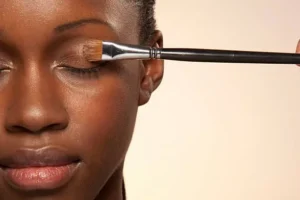Sharing makeup brushes might seem harmless—after all, it’s just a quick swipe of blush or eyeshadow. However, this seemingly innocent act can have serious consequences for your skin and overall health. Even when shared with close friends or family, makeup brushes can become breeding grounds for bacteria, viruses, and fungi that lead to infections and other skin problems.
Let’s dive into why sharing makeup brushes is risky, the potential health effects, and how to maintain a safe and clean beauty routine.
1. Makeup Brushes Harbor Bacteria and Germs
Every time you use a makeup brush, it collects oils, bacteria, dead skin cells, and residue from your skin. Sharing these brushes transfers bacteria between users, which can lead to:
- Breakouts: Bacteria like Propionibacterium acnes can clog pores and trigger acne.
- Skin Infections: Brushes can harbor harmful bacteria such as Staphylococcus aureus (staph), which can cause painful infections if it enters cuts or broken skin.
Even if your skin looks clean, bacteria thrive on makeup tools, turning a shared brush into a risk factor for various skin issues.
2. Sharing Brushes Increases Viral Spread
Certain viruses, including herpes simplex virus (which causes cold sores), can survive on makeup brushes for hours. If someone with an active cold sore uses your brush, they could unknowingly pass the virus to you. Viruses don’t need visible symptoms to spread, making this risk particularly insidious.
3. Fungal Infections Love Moist Environments
Fungi thrive in warm, damp conditions—exactly the kind of environment found on used makeup brushes. Sharing brushes can spread fungal infections like:
- Ringworm: A contagious fungal infection that causes red, scaly patches on the skin.
- Athlete’s Foot: If someone uses your brushes after applying makeup to an infected area, the fungi can transfer.
These infections are not only uncomfortable but can also take weeks to treat.
4. Allergic Reactions and Skin Sensitivities
Your skin’s tolerance to certain products might differ from someone else’s. When you share brushes, you’re exposing your skin to traces of their makeup, skincare products, or even cleaning agents they’ve used. This can lead to:
- Redness
- Itching
- Painful Rashes
Even if the products are safe for them, they may not be compatible with your skin type or allergies.
5. Eye Infections Are a Major Concern
The eyes are particularly sensitive, making the risk of infection higher when sharing brushes used for eyeliner or eyeshadow. Common infections include:
- Conjunctivitis (Pink Eye): A highly contagious eye infection that causes redness, itching, and discharge.
- Styes: Painful lumps caused by blocked oil glands or infected hair follicles around the eyelids.
Eye infections can spread quickly and are often uncomfortable, making it critical to avoid sharing brushes used near the eyes.
6. Cross-Contamination Weakens Your Beauty Routine
Using shared brushes can also compromise your makeup products. Contaminated brushes can transfer bacteria and germs into powders, creams, or liquids, reducing their shelf life and increasing the risk of infection every time you apply them.
How to Protect Your Skin and Health
Here are practical tips to keep your beauty routine clean and safe:
1. Use Your Own Brushes
- Never share brushes, even with family or close friends.
2. Clean Brushes Regularly
- Wash your brushes weekly using gentle soap or dedicated brush cleaners to remove buildup and kill bacteria.
- Allow brushes to air-dry completely before using them again.
3. Use Disposable Applicators
- If you’re a makeup artist or sharing makeup for any reason, use disposable tools like sponge applicators or cotton swabs to minimize contamination.
4. Avoid Double Dipping
- Don’t dip brushes into shared products like loose powder or creams without sanitizing them first.
5. Keep an Eye on Expiration Dates
- Old products can harbor bacteria, so replace makeup and brushes as recommended by manufacturers.
Why It’s Worth the Effort
Protecting your skin from infections and irritation is worth the extra effort of maintaining your personal makeup tools. While sharing may seem like a simple favor, the potential health risks far outweigh the convenience.
The Golden Rule: Don’t Share Brushes
Your beauty routine is personal, and so should your tools be. Stick to your own brushes, keep them clean, and avoid sharing to ensure your skin stays healthy and radiant.
Follow us for more latest tips


